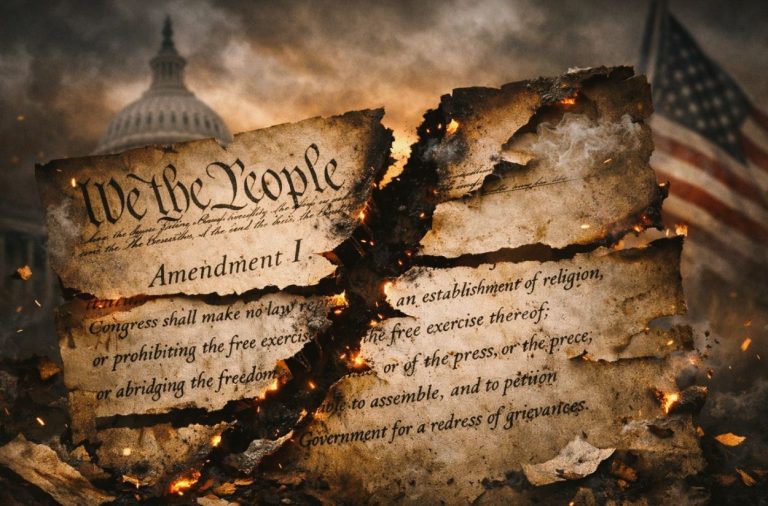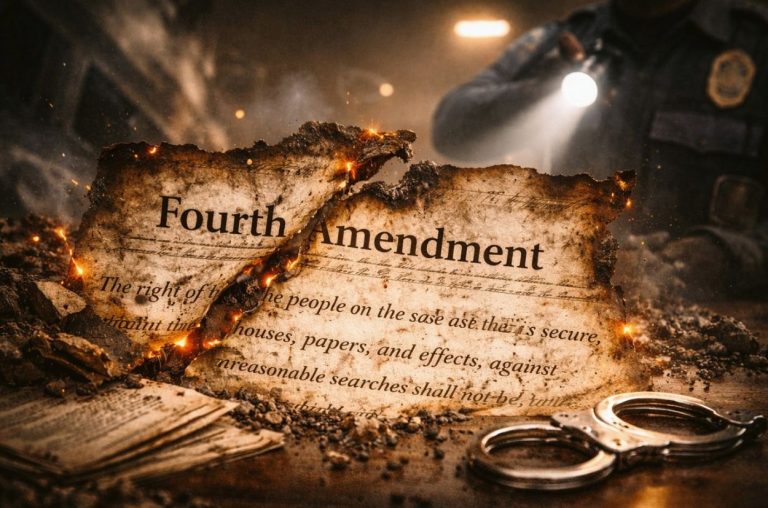

History often turns not on the power of leaders but on the persistence of ordinary people who decide they’ve had enough.

By Matthew A. McIntosh
Public Historian
Brewminate
Introduction
The line outside a polling station in Philadelphia stretched around the block, even as rain slicked the sidewalks and wind whipped the campaign signs into tangled knots. People stood with coffee cups and umbrellas, quiet but resolute, their patience speaking louder than any slogan. A woman near the front wrapped herself in a blue poncho and said to the man beside her, “I’ve waited all year for this.” She wasn’t angry, she was steady, as if she’d finally come to settle a debt with history.
Across the country, scenes like this unfolded from Atlanta to Richmond to Trenton. In every region, Americans showed up not in apathy but in defiance. Democrats didn’t just win, they swept. Statehouses flipped, ballot measures surged, and city councils turned blue in numbers unseen since the early Obama years. It wasn’t a wave. It was a reckoning.
Governor Josh Shapiro of Pennsylvania put it plainly after Democrats took major victories in his state: “Folks are tired of chaos.” This week showed a weary electorate pushing back against the disorder and cruelty that have defined President Trump’s second term. His administration’s heavy-handed raids by ICE and the deployment of the National Guard in multiple cities had left the nation raw, its constitutional fabric stretched thin. This week, voters answered not with violence but with ballots, the modern muskets of a free people.
What happened on election night was not just partisan momentum. It was a civic resurrection, a chorus of Americans recalling the same impulse that drove farmers and printers, dockworkers and ministers, to stand against a king two and a half centuries ago. From colonial taverns to twenty-first-century polling places, the spirit is the same. The Patriots are rising again.
The Blue Tsunami and What It Means
The numbers alone tell a story, but the meaning lies in what drove them. As NPR reported, Democrats claimed decisive victories across Pennsylvania, Georgia, and Virginia, flipping key governorships and legislative chambers once considered safely red. In New Jersey, they expanded already dominant majorities, while city races in Atlanta, Phoenix, and Cleveland broke turnout records for off-year elections. The scale of participation, especially among younger voters and women, signaled not fatigue, but renewal. Voters were not voting for a party so much as voting against decay.
Many described this election as a stand for decency rather than ideology. One voter in Virginia called her ballot “an act of refusal,” a refusal of cruelty, corruption, and the creeping normalization of executive overreach. Others spoke of fear for their rights, from reproductive freedom to voting access, which have been targeted repeatedly by Trump’s administration. The common refrain was not triumph but relief: a sense that democracy, though battered, still had fight left in it.
The political implications were immediate. This was not a fluke of turnout or messaging but a broad repudiation of Trump’s presidency. Even conservative strategists conceded that the results reflected a public exhausted by authoritarian posturing and economic decline. The so-called “Trump coalition” fractured in real time as suburban, moderate, and independent voters turned sharply away from the White House. The blue tsunami was not a wave of loyalty; it was a tidal act of resistance.
And yet the tone of the night was not vengeful. It was solemn, almost reverent. People celebrated, yes, but with a tempered joy, aware that victory was fragile and freedom still conditional. In bars, coffee shops, and living rooms, talk of democracy no longer felt abstract; it felt personal again. For the first time in years, the ballot box didn’t just register preference. It registered conscience.
“No Kings” and the Patriot Spirit
Even in the months before voters filled the polls, the streets had already begun to stir. In dozens of cities, thousands marched beneath banners reading “No Kings,” a slogan that first appeared on colonial broadsides and now reemerged on cardboard and canvas in 2025. From Boston Common to downtown Denver, the rallies were peaceful but fierce in conviction, their message unmistakable: the presidency had become unrecognizable, and the people would not bow. These gatherings, held earlier this year and documented widely on social media and in local reports, marked the moment when resistance turned from frustration into moral clarity. They were not protests against policy; they were protests against rule.
The phrase “No Kings” carried both irony and precision. Trump, though elected, now governs like the monarch America once overthrew, issuing orders by whim, deploying federal forces to intimidate dissenters, and framing opposition as treason. In recent months, his administration’s use of ICE for mass detentions without due process and the National Guard to enforce curfews in politically unfriendly cities drew condemnation from civil rights organizations and legal scholars alike. The “No Kings” movement emerged not from partisanship but from outrage, a constitutional instinct flaring back to life.
Like the Patriots who once gathered in taverns and meeting halls, today’s demonstrators carried the language of rebellion on their signs but the discipline of citizenship in their actions. They organized voter drives, helped register first-time voters, and turned protest into participation. Their work built the momentum that exploded at the ballot box this week. This was democracy rediscovering its muscle, and that muscle was powered not by anger alone, but by memory, a sense of what the nation was built to resist.
Trump’s loyalists have dismissed these movements as the work of “radicals” or “agitators,” echoing the Loyalists of 1776 who slandered revolutionaries as traitors to the crown. But history has a long memory, and it recognizes the familiar shape of resistance when it rises. Then, as now, those who called themselves patriots were not rebels against law but defenders of it. They refused to surrender the idea that authority must answer to the governed. Each “No Kings” chant was less a protest than a pledge, an oath to the founding ideal that power, once untethered from principle, ceases to be legitimate.
The lesson of this year’s protests and elections is the same one written into the Declaration of Independence: that governments derive their just powers from the consent of the governed, and that consent can be withdrawn. The Patriots of the eighteenth century fought that battle with muskets; the Patriots of today fight it with ballots and conscience. Both understand that tyranny, no matter how familiar its accent, remains tyranny all the same. The crowd’s cry, “No Kings!”, is not nostalgia. It is prophecy.
A Despot in Real Time
President Trump’s second term has evolved into a living study of power without restraint. What began as the rhetoric of grievance has hardened into governance by intimidation. His public orders to federal agencies have grown increasingly personal, targeting perceived enemies rather than addressing policy. Immigration raids by ICE have expanded into sweeps that civil rights lawyers describe as “mass violations of due process.” The National Guard deployments to Philadelphia, Portland, and Chicago were justified under vague claims of “restoring order,” yet footage showed peaceful demonstrators surrounded by armored vehicles. His press conferences have turned into declarations of supremacy, insisting that “the President’s word is law.”
In such moments, the illusion of democracy flickers. What Trump exercises now is not authority, but domination, the belief that government exists to impose his will rather than reflect the nation’s. The tactics are not new. Kings once imprisoned critics in the name of stability; presidents now threaten journalists under the banner of “national security.” The parallel is exact because the psychology is the same: fear of opposition, hunger for reverence, and contempt for limits. His loyalists continue to defend every decree as necessity, just as British Loyalists once excused George III’s abuses as the cost of order.
But history has little patience for such defenses. The president’s insistence that “only I can fix it” has become a grim refrain in a country that once pledged itself to self-government. The result has been both economic and moral decay. Inflation has deepened, investment has fled, and ordinary Americans (workers, teachers, nurses) face the quiet terror of a system that no longer listens. In the vacuum of trust, power consolidates, and the Constitution begins to resemble parchment instead of principle.
What this week’s elections proved, however, is that the public has not forgotten its heritage. The blue wave was not an act of opposition politics; it was an act of constitutional memory. Each vote cast was a reminder that sovereignty does not belong to one man, no matter how loudly he proclaims himself the voice of “the people.” Trump governs as if America is his inheritance. The electorate just reminded him it is not.
The Patriots of the Present
The Revolution’s heirs do not wear uniforms or carry muskets. They stand in voting lines, organize neighborhood coalitions, and speak in classrooms and courthouses about rights they refuse to surrender. These are the Patriots of the present, citizens who understand that democracy is not inherited but renewed. Their defiance does not erupt in violence; it endures in patience. They vote, they protest, they protect. In the face of fear and fatigue, they are rediscovering what it means to serve a republic rather than revere a ruler.
Across the nation, that service has taken countless forms. Poll workers who refused intimidation became the new sentinels of liberty. Local officials who upheld election law despite pressure from the White House stood where colonial magistrates once stood when they defied royal decrees. Ordinary voters, many first-timers, braved threats and disinformation to cast ballots in record numbers. These efforts produced historic firsts for women, people of color, and younger candidates who ran on platforms of accountability and reform. The Patriots have learned that courage is contagious.
Like their eighteenth-century counterparts, today’s Patriots act from conviction, not calculation. They know that liberty’s defense is rarely convenient or comfortable. Trump’s use of federal power to punish dissent has made every act of protest an act of principle. Yet this year’s voters answered repression not with resignation but with resolve. Each vote was a declaration that the republic belongs to the governed.
There is no mistaking the historical rhythm. Where Loyalists once swore allegiance to a crown, modern loyalists have tied their fate to a single man. But just as in 1776, their number is fading. The Patriots, ordinary people awakened by crisis, have rediscovered the oldest American truth: that power obeys only when confronted. They have taken up the Revolution’s unfinished work, proving once again that freedom’s endurance depends not on presidents or parties, but on the stubborn conscience of its people.
Conclusion: The Revolution Renewed
History often turns not on the power of leaders but on the persistence of ordinary people who decide they’ve had enough. That resolve filled polling stations this week and echoed through the No Kings marches that have swept the country. From Boston to Phoenix, Americans are doing what their forebears once did: rejecting tyranny in the language of democracy. The ballots cast on Tuesday were not simply votes; they were reminders that freedom’s inheritance is never automatic. Every generation must claim it again or risk watching it rot under the weight of apathy.
Trump’s presidency has made that lesson urgent. His disregard for constitutional limits and his willingness to use the machinery of state against his own citizens have stripped the illusion from politics and laid bare the struggle beneath: monarchy or self-government, obedience or liberty. His loyalists still kneel, but the Patriots stand. The blue tsunami that swept across states this week was not just a partisan victory; it was a declaration that the republic still breathes.
The founders would recognize this moment. They, too, lived under a ruler who mistook power for purpose and loyalty for law. They, too, answered with courage rather than compliance. Today’s patriots honor that lineage not with muskets or manifestos but with ballots, voices, and relentless civic will. The Revolution never ended; it only waits for those who remember why it began.
Originally published by Brewminate, 11.07.2025, under the terms of a Creative Commons Attribution-NonCommercial-NoDerivatives 4.0 International license.


